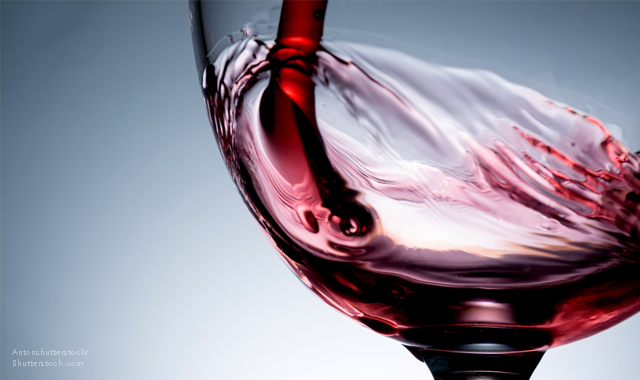Is wine a good mouthwash?
If wine is good for cardiovascular health, could it also be good for oral health?

Good nightly oral hygiene should include brushing (properly, of course), flossing and maybe a mouth rinse. And as a new study shows, adding wine to that list might be a good idea.
Sure, wine can still stain teeth, but according to a new study published in ACS’ Journal of Agricultural and Food Chemistry, it can also block off bacteria responsible for periodontal disease and caries.
Many plants and fruits contain polyphenols, defense secondary metabolites that have been proven to be beneficial, such as promoting cardiovascular health or preventing metabolic diseases. Part of the reason for these benefits is because polyphenols - which are abundant in red wine - have significantly affect bacterial growth. The researchers thought if wine’s polyphenols have an impact on bacteria in the gut, they might also have an effect on oral bacteria.
Related article: Study finds link between frailty and oral health
To find out, they tested two different polyphenols found in wine - caffeic and p-coumaric acids - as well as grape seed and red wine extracts on cells that mimic gum tissue. While polyphenols have been shown to have antimicrobial effects, the polyphenols levels found in wine are generally too low. However, polyphenols also inhibit a bacterium’s ability to attach itself to cells. With this knowledge, researchers examined how the substances affected different bacteria’s abilities to adhere to gum tissue.

Overall, the extracts were not as effective as the isolated polyphenols, but all still had some effect. Streptococcus mutans - bacteria common in the oral cavity and a contributor to tooth decay - was partially inhibited by the polyphenols, with between 20 to 40 percent effectiveness. A major cause of periodontal disease, Porphyromonas gingivalis, was reduced by both the extracted polyphenols and the wine extracts.
Over all, the study concluded that the evidence highlights “the potential of grape derived polyphenols as natural therapy to prevent caries and periodontal diseases, alone or in combination with traditional treatments.”
More research is needed into what exactly happens in vivo, but if the results are confirmed, this could be a delicious new addition to an oral healthcare regimen!
Reference
“Inhibition of Oral Pathogens Adhesion to Human Gingival Fibroblasts by Wine Polyphenols Alone and in Combination with an Oral Probiotic,” Published in Agricultural and Food Chemistry. DOI: 10.1021/acs.jafc.7b05466